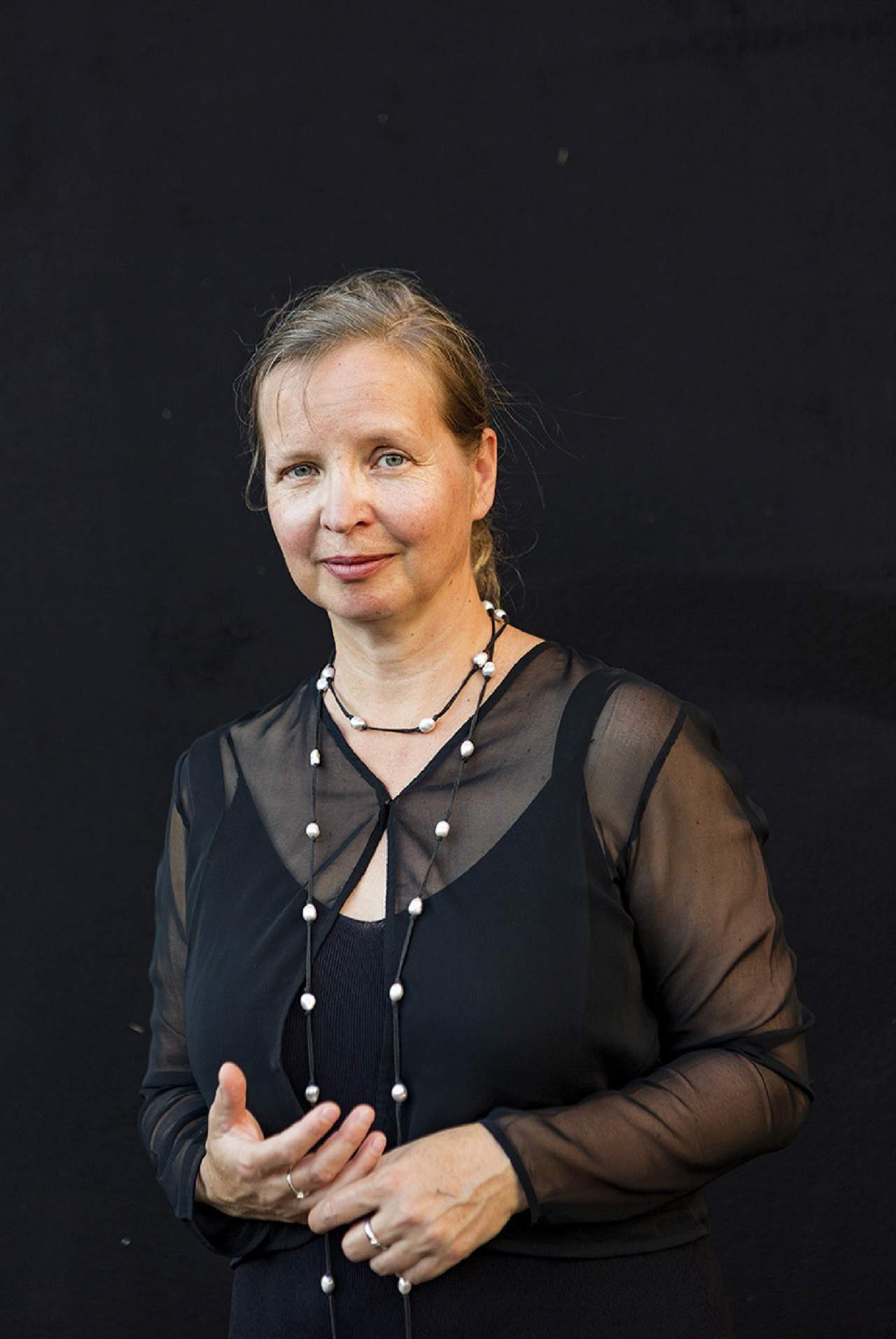
Since journalism’s takeover of fiction in our time, so many novels have been about that dreaded and dead-on-arrival issue, “topicality”, that it is a shock to read a novel that is at once urgent and contemporary but does not feel like an extended riff, with characters, on a Guardian op-ed piece.
The brilliant German novelist Jenny Erpenbeck has taken on the churn of the great issues of refugees, illegal immigration and asylum in her latest novel, Go, Went, Gone, and created something profound, beautiful and deeply affecting, and as far as it is possible to get from the “current affairs novel”.
Formally, it is more conventional than her daring Visitation and The End of Days, and her longest novel to date at around 300 pages – Visitation was a concentrated 170 – yet the shuffling off of received wisdom on character and plot goes on subtly here, too, as she handles a cast of dozens and shatters narrative linearity.
The central organising principle in Go, Went, Gone is the point of view of its main character, Richard, a retired Classics professor, who watches on TV a small demonstration of silent men – refugees – in Alexanderplatz, holding a sign that says, “We become visible.” From this point of origin, Richard’s incipient interest in who these stubbornly silent protesters are will grow and draw him to a much bigger group, camping out in makeshift tents in Oranienplatz, some of them from countries Richard cannot even locate on an atlas: Mali, Niger, Somalia, Burkina Faso. What impels him?
To investigate how one makes the transition from a full, readily comprehensible existence to the life of a refugee, which is open in all directions – drafty, as it were – he has to know what was at the beginning, what was in the middle, and what is now. At the border between a person’s life and the other life lived by that same person, the transition has to be visible – a transition that, if you look closely enough, is nothing at all.
Richard, after all, is more attuned than most to invisible transitions that result in a change of state: he was a citizen of East Germany, until the Berlin Wall came down in 1989 and he found himself, in middle age, belonging to a different nation.
As Richard begins to show up at the centres where these asylum seekers are held and moved around until their applications are decided, and to interview them about how they came to be seeking refuge in Germany, a fractured mosaic emerges of the individual lives behind the statistics and the journalistic discourse of “hordes” and “swamping”.
There’s Awad, born in Ghana, but sent to Libya aged seven to live with his father. That life ends when the civil war begins and hundreds of African immigrants settled in Libya are rounded up by soldiers, put on a dinghy and set afloat in the Mediterranean. This is how he fetches up in Italy. There’s Rashid, from Nigeria, whose village is attacked and set on fire by Boko Haram: his neighbours and family are killed, and he is forced to go on the run to Niger.
Touchingly, Richard uses Classical and literary names as mnemonics to remember the foreign names of his new friends: Apollo, Tristan, the thunderbolt-hurler. It is a mark of Erpenbeck’s compassion and her complex, nuanced understanding of the human motivations of sympathy that she can make this (white, liberal) weakness of Richard a tender, even humorous seam in her book.
Richard’s story, too, bubbles up within the interrupted flows of these lives: socialising with old friends; the death of his wife, Christel, five years earlier; a late-life affair, now ended, while Christel was still alive. But the ringside view of fugitive lives teaches Richard, as it teaches us, some adamantine truths about Europe, the laws controlling its borders and the bureaucratic ways in which asylum seekers are dealt with, down to the last detail of how the system has been designed to make their lives impossible and unsustainable in this continent.
A lucid section on what historians call the longue durée of movement of people across continents, bringing seamlessly together Classical antiquity and modern-day Niger and Libya, underscores the logical inconsistencies and inhumanity of European immigration laws. As the book ends in dispersal and hopelessness, the question arises: what can be salvaged? Only individual acts of compassion and generosity, always already failing against the machinery of the state, and this extraordinary novel, bearing unflinching testament to history as it unfolds.
Neel Mukherjee’s novel “A State of Freedom” is published by Chatto & Windus
Go, Went, Gone
Jenny Erpenbeck. Translated by Susan Bernofsky
Portobello Books, 304pp, £14.99
This article appears in the 11 Oct 2017 issue of the New Statesman, How May crumbled





